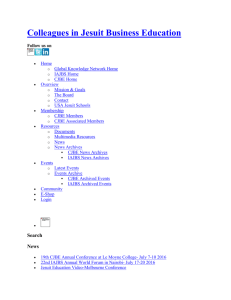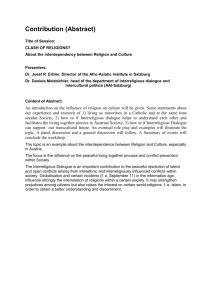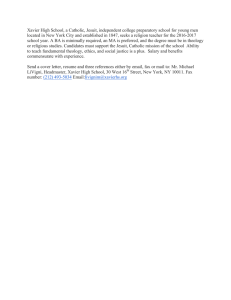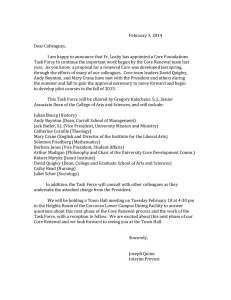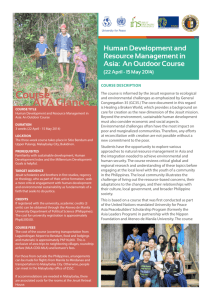A Jesuit University: Interreligious and Intercultural Dialogue
advertisement
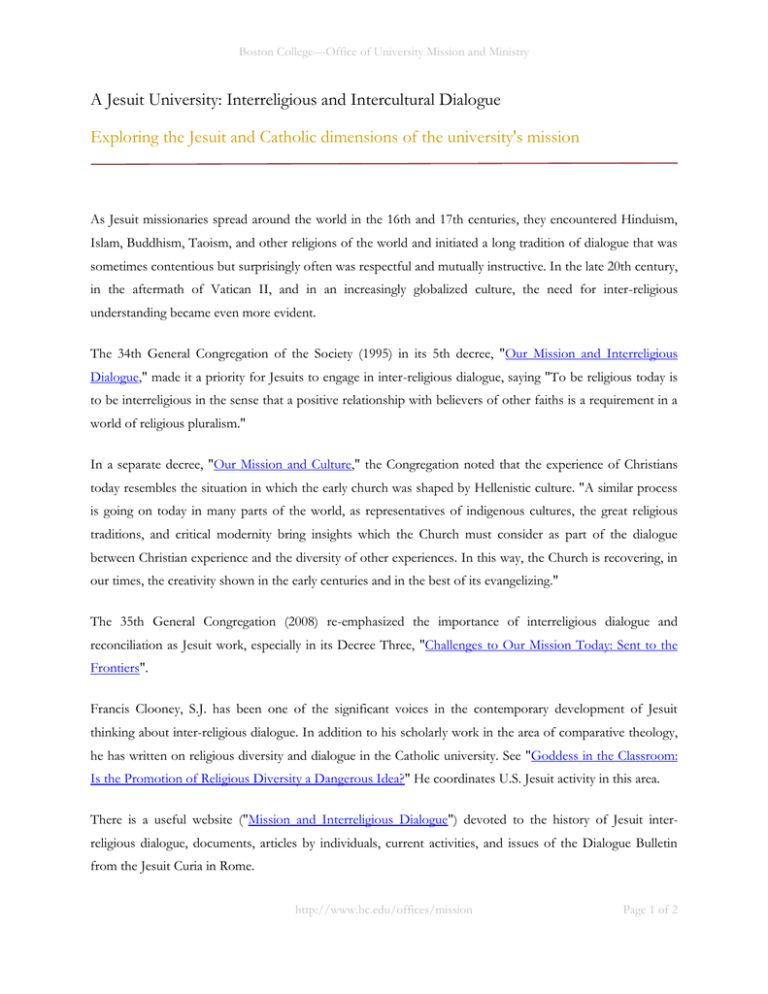
Boston College—Office of University Mission and Ministry A Jesuit University: Interreligious and Intercultural Dialogue Exploring the Jesuit and Catholic dimensions of the university's mission As Jesuit missionaries spread around the world in the 16th and 17th centuries, they encountered Hinduism, Islam, Buddhism, Taoism, and other religions of the world and initiated a long tradition of dialogue that was sometimes contentious but surprisingly often was respectful and mutually instructive. In the late 20th century, in the aftermath of Vatican II, and in an increasingly globalized culture, the need for inter-religious understanding became even more evident. The 34th General Congregation of the Society (1995) in its 5th decree, "Our Mission and Interreligious Dialogue," made it a priority for Jesuits to engage in inter-religious dialogue, saying "To be religious today is to be interreligious in the sense that a positive relationship with believers of other faiths is a requirement in a world of religious pluralism." In a separate decree, "Our Mission and Culture," the Congregation noted that the experience of Christians today resembles the situation in which the early church was shaped by Hellenistic culture. "A similar process is going on today in many parts of the world, as representatives of indigenous cultures, the great religious traditions, and critical modernity bring insights which the Church must consider as part of the dialogue between Christian experience and the diversity of other experiences. In this way, the Church is recovering, in our times, the creativity shown in the early centuries and in the best of its evangelizing." The 35th General Congregation (2008) re-emphasized the importance of interreligious dialogue and reconciliation as Jesuit work, especially in its Decree Three, "Challenges to Our Mission Today: Sent to the Frontiers". Francis Clooney, S.J. has been one of the significant voices in the contemporary development of Jesuit thinking about inter-religious dialogue. In addition to his scholarly work in the area of comparative theology, he has written on religious diversity and dialogue in the Catholic university. See "Goddess in the Classroom: Is the Promotion of Religious Diversity a Dangerous Idea?" He coordinates U.S. Jesuit activity in this area. There is a useful website ("Mission and Interreligious Dialogue") devoted to the history of Jesuit interreligious dialogue, documents, articles by individuals, current activities, and issues of the Dialogue Bulletin from the Jesuit Curia in Rome. http://www.bc.edu/offices/mission Page 1 of 2 Boston College—Office of University Mission and Ministry An interesting approach to the role of inter-religious and intercultural dialogue can be found in a paper written by John McDade, a Scottish Jesuit theologian, for the 1999 conference on Jesuit higher education at St. Joseph's University in Philadelphia ("The Jesuit Mission and Dialogue with Culture," in Jesuit Education 21: Conference Proceedings on the Future of Jesuit Higher Education, ed. Martin R. Tripole; Saint Joseph's University Press, 2000, 56-66). McDade quotes the remark of an English Jesuit, Peter Hackett: "Christianity lacks an anthropology of its own, and always has to learn from other sources what it means to be human." McDade suggests that Christianity is always involved in a double activity, proclaiming to human culture the significance of the unique reality of the divine Word made flesh but also discovering in dialogue with human culture a richer account of what it means to be human. It not only draws on other anthropologies, it needs them to understand itself. "Now, if this is right, Christian truth cannot eliminate what is outside its territory without undermining itself: the non-Christian other to which we relate is the other that we need in order to be ourselves." (62) An article from Company Magazine, "Changing Faces", focuses on the promotion of unity on Jesuit campuses, where a generation of students has grown up in culturally plural world. http://www.bc.edu/offices/mission Page 2 of 2
